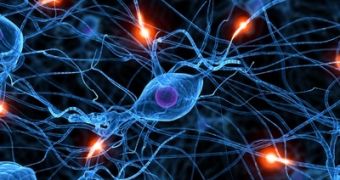Yesterday, the online issue of the medical journal of the American Academy of Neurology saw the publication of a new study concerning the effects of speech therapy on the brain.
More precisely, it is now argued that just seven days of intense therapy (as much as three sessions per day) can aid the brain in reorganizing itself, thus reducing the effects of a speech disorder commonly known as 'stuttering'.
In order to ensure the accuracy of their findings, the researchers in charge of conducting this study split the 28 stuttering individuals, chosen to take part in this investigation into two groups: 15 were to receive said intense therapy, whilst the remaining 13 worked as a control group, together with 13 other people who did not stutter.
Apart from the easily noticeable effects of therapy (i.e. the patients significantly improved their speaking abilities), the researchers also found that changes had taken place at the level of the brain.
As Newswise explains, the functional connectivity in the cerebellum of the patients who presented with stuttering ended up being very similar to that on non-stuttering patients once the therapy sessions came to an end.
Chunming Lu, PhD from the Beijing Normal University in China argues that, “These results show that the brain can reorganize itself with therapy, and that changes in the cerebellum are a result of the brain compensating for stuttering.”
However, because no changes were reported in the patient's pars opercularis (i.e. a part of the brain that plays a major part in speech and language production), either in terms of thickness, or as far as the strength of interactions were concerned, the specialists concluded that, “the structure of the pars opercularis area of the brain is altered in people with stuttering.”
To put it bluntly: although the brain cannot work to repair its altered areas, it can instead compensate for them by improving on other pathways found within it.
Commenting on this report, Christian A. Kell from the Goethe University in Frankfurt, made a case of how, “These findings should further motivate therapists and researchers in their efforts to determine how therapy works to reorganize the brain and reduce stuttering.”

 14 DAY TRIAL //
14 DAY TRIAL //